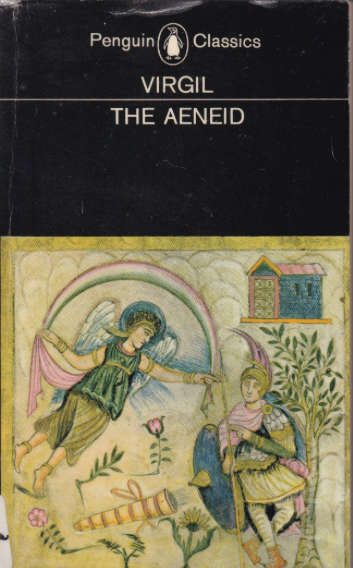Published by Penguin Classics, 1970, softcover, map, 280 pages, condition: as new. The greatest orator in Roman history, Marcus Tullius Cicero remained one of the republic's chief supporters throughout his life, guided by profound political beliefs that illuminated his correspondence with both close friends and powerful aristocrats. A chronicle of a crumbling civilization during the era when the republic disintegrated and was replaced by despotism, his Letters portray a world dominated by characters who have since acquired almost mythic status - including Pompey, Caesar, Brutus, Cassius, and Mark Antony. Whether describing the vagaries of war, the collapse of Roman society, his beloved republic, or his own personal domestic dramas, all compellingly reflect the complex personality of an honourable and selfless man whose refusal to compromise ultimately cost him his life.
"I have been on a journey to read everything by Cicero I can lay my hands on. He has written some wonderful books on philosophy and political theory, such as The Republic, The Laws and On Obligations. However, to truly understand Cicero, you need to read his letters and his speeches. What annoyed me at first was that Cicero had a strange self-obsession. This self-obsession is, however, quite different from the modern self-centredness described by the likes of Ayn Rand, and even (forgive me) Enlightenment thinkers like John Locke.
Cicero was dubbed the Little Greek Boy because of his obsession with Greek philosophy. Even though he was extremely ambitious, his concept of ambition (and thanks to Cicero, now also my own) is wonderfully captured in Homers Iliad, where Glaucus and Diomedes meet on the battlefield and Glaucus says that he intends to win the battle, because his father was a great man, and his father before him, and because he is part of a great people. So ambition, in the Greek conception, and also that of Cicero was to always be the best, not merely for self-glorification, but in order to bring honour and glory to your ancestors who were indeed great, and your people, who are indeed great. So even though Ciceros self-conception was a bit over the top (for example, asking people to write books about him), his entire life was devoted to the good of his people and the Republic which, as he writes more than once in his letters, he loved more than himself.
What strikes me from his letters is firstly that it gives us much more than just a glimpse into the life of this man who lived thousands of years ago. He spoke at length about his love for his family and friends, his sorrow about losing loved ones and so forth, his concern about everyday issues, such as his finances and so on. Philosophically speaking, the value of this book is that it helps us to understand Ciceros republicanism. In a sense, Ciceros life project was a failure, because the Republic did in fact die in many important ways with the death of Cicero. However, retrospectively we can ask whether Ciceros life project was indeed a failure, given that he is today regarded as one of the founders and great thinkers of Western Civilization.
His concept of republicanism was clearly one that indicated a reciprocal relationship. In his letters he speaks about the things he has given to the Republic, and the things he has received from the Republic (gratitude is also an important underlying theme). It is also clear from his letters that losing the Republic means losing an important part of himself as well.
Cicero saw the Republic as the road towards freedom for the community, and to contribute to the Republic was to contribute to the freedom of your people."

